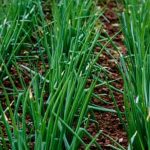Vegetable gardens are not only a source of fresh produce but also a labor of love for many gardeners. However, one common concern that plagues gardeners is the presence of pests, with rats being a significant threat. The question arises: do rats like vegetable gardens? Understanding the behavior and preferences of these rodents is crucial in safeguarding our green spaces.
Rats are known to be opportunistic creatures, often seeking out sources of food wherever they can find them. Vegetable gardens provide an attractive buffet for these unwanted visitors, with their fresh and tender crops luring them in. Rats may target a variety of vegetables, causing extensive damage to the plants and frustrating gardeners who have put in time and effort to cultivate their gardens.
Identifying the signs of rat infestation is essential to take timely action against these pests. From chewed leaves and fruits to burrow holes near plants, these indicators can alert gardeners to the presence of rats in their vegetable gardens. In the upcoming sections, we will delve deeper into understanding rat behavior, their vegetable preferences, methods to prevent infestations, and natural remedies to protect our beloved produce from harm.
Understanding Rats
Rats are a common nuisance in many environments, including gardens. These rodents have behaviors and habits that make them particularly attracted to vegetable gardens. Understanding their tendencies can help gardeners take appropriate measures to protect their crops from these unwanted visitors.
To understand rats better, here are some key points about their behavior:
- Rats are nocturnal creatures, meaning they are most active during the night.
- They have an excellent sense of smell, which helps them locate food sources easily.
- Rats are opportunistic feeders, meaning they will eat almost anything, including vegetables grown in gardens.
It is important for gardeners to be aware of these traits when trying to prevent rat infestations in their vegetable gardens. By knowing how rats behave and what attracts them to gardens, individuals can take proactive steps to protect their crops.
In addition to understanding rat behavior, it is also essential to recognize the specific types of vegetables that rats are particularly attracted to. Some common vegetables that rats may target include:
- Carrots
- Corn
- Squash
By being aware of these preferences, gardeners can focus on protecting these specific vegetables from rat damage. Implementing preventive measures tailored to the vegetables rats prefer can significantly reduce the risk of infestation and protect the garden’s yield.
Preference for Vegetables
Rats are known to be opportunistic feeders, willing to consume a wide variety of foods to survive. When it comes to vegetable gardens, rats can be particularly attracted to certain types of vegetables due to their taste and nutritional content. Among the vegetables that rats are commonly drawn to are sweet corn, tomatoes, peas, and cucumbers. These vegetables tend to have a higher sugar content, making them more appealing to rats looking for a quick source of energy.
Root Vegetables
Rats have a penchant for root vegetables such as carrots, beets, and potatoes. These underground vegetables provide rats with both sustenance and hydration, making them a desirable target for rat infestations in vegetable gardens. Their crunchy texture and earthy flavor make root vegetables an enticing treat for rats seeking out fresh produce.
Leafy Greens
Leafy greens like lettuce, kale, and spinach are also popular targets for rats in vegetable gardens. These leafy vegetables are not only nutritious but also easy targets for hungry rodents looking for a quick meal. Rats may nibble on the tender leaves of these plants, causing significant damage and reducing the overall yield of the garden.
Solutions
To protect your vegetable garden from rat infestations, it is important to take proactive measures such as securing fences around the garden perimeter, using motion-activated sprinklers or lights to deter rats, and removing any potential food sources that may attract these pests. Additionally, planting deterrents like mint or garlic near vulnerable crops can help repel rats from feasting on your prized vegetables.
By understanding which vegetables are most attractive to rats and implementing effective prevention methods, you can safeguard your garden from these unwanted visitors.
By being aware of the types of vegetables that rats are attracted to and taking steps to safeguard your garden against rodent infestations, you can enjoy a thriving vegetable garden free from destructive pests. Remembering that prevention is key when it comes to protecting your crops will help ensure that you do not fall victim to unwanted rat visitors in your backyard haven of fresh produce.
Signs of Rat Infestation
Rats can be a significant issue for vegetable gardeners, as they are attracted to the variety of plants and food sources available. It is essential to be able to identify the signs of rat infestation early on to prevent further damage. Here are some common indicators that rats may be present in your vegetable garden:
- Presence of rat droppings: One of the most obvious signs of a rat infestation is finding their droppings scattered around the garden. Rat droppings are dark, oval-shaped pellets, typically found near food sources or along their pathways.
- Chewed or gnawed plants: Rats have a tendency to chew on plant stems, leaves, and fruits as they search for food. If you notice any vegetation with bite marks or missing parts, it could be a sign of rat activity.
- Runways or burrows: Rats create runways or pathways in densely vegetated areas to navigate through the garden easily. They also build burrows under debris, compost piles, or in holes dug into the ground.
If any of these signs are present in your vegetable garden, it is crucial to take action promptly to address the rat infestation before it escalates further. By being proactive in identifying these tell-tale signs, you can effectively manage and control rat populations without causing harm to other wildlife or the environment.
Implementing preventive measures and utilizing natural remedies can help deter rats from targeting your vegetable garden as their next buffet. By staying vigilant and monitoring your garden regularly for any signs of rat activity, you can protect your hard work and enjoy a flourishing vegetable harvest without interference from these unwanted pests.
Damage Caused by Rats
Rats are notorious for causing significant damage to vegetable gardens, making them a common concern for gardeners. These pests have voracious appetites and can quickly decimate crops if left unchecked. Understanding the destruction that rats can cause is essential in implementing effective control measures to protect your precious plants.
Feeding Habits of Rats
Rats have a wide-ranging diet, but they particularly enjoy feasting on fresh vegetables. They are attracted to the sweet taste of fruits like tomatoes, strawberries, and melons, as well as leafy greens such as lettuce and spinach. Rats are known to nibble on young seedlings and chew through ripe produce, leaving a trail of destruction in their wake. Additionally, these rodents have sharp incisors that allow them to gnaw through plant stems, roots, and even irrigation systems.
Destruction in the Garden
When rats invade a vegetable garden, they can cause extensive damage beyond just eating the plants. Their burrowing behavior can uproot crops and disrupt soil structure, leading to poor plant growth and reduced yield. Rats also leave behind droppings that can contaminate produce with harmful bacteria, posing a health risk to humans who consume the tainted vegetables. Furthermore, their constant foraging can attract other pests like insects and birds, creating a cascade of problems for the garden ecosystem.
Impact on Harvest
The presence of rats in a vegetable garden can significantly impact the harvest both in quantity and quality. As these pests devour crops indiscriminately, they prevent gardeners from enjoying the fruits of their labor by destroying valuable produce.
Moreover, dealing with rat-inflicted damage can be time-consuming and costly, requiring additional resources to replant lost crops or repair infrastructure. It is crucial for gardeners to take proactive measures to prevent rat infestations and safeguard their vegetable gardens from potential devastation.
Prevention Methods
Vegetable gardens are a source of pride for many homeowners and garden enthusiasts, providing fresh produce and a connection to nature. However, these gardens can often fall victim to various pests, including rats. Understanding how to prevent rats from entering and damaging a vegetable garden is crucial for maintaining a successful harvest.
Rats are known for their keen sense of smell, agility, and ability to adapt to different environments. They are attracted to vegetable gardens due to the availability of food sources such as fruits, vegetables, seeds, and compost. Rats are particularly drawn to high-moisture vegetables like cucumbers, tomatoes, and melons. Additionally, they may also feed on root vegetables like carrots and beets.
To prevent rats from infesting a vegetable garden, it is essential to implement effective strategies. One approach is to eliminate potential food sources by securing trash cans with tight-fitting lids, removing fallen fruits and vegetables promptly, and keeping compost bins covered. Additionally, maintaining a clean garden with trimmed vegetation can help reduce hiding spots for rats.
Another method to deter rats is by using physical barriers such as wire mesh or hardware cloth around the perimeter of the garden beds. These barriers should extend below ground level to prevent rats from burrowing underneath. Placing motion-activated lights or noise-making devices in the garden can also discourage rats from frequenting the area. By combining these prevention methods, gardeners can protect their vegetable gardens from rat damage effectively.
| Types of Vegetables Rats Are Attracted To | Prevention Strategies |
|---|---|
| Cucumbers | Implementing physical barriers like wire mesh |
| Tomatoes | Maintaining a clean garden environment |
| Root Vegetables (Carrots, Beets) | Using motion-activated lights or noise-making devices |
Natural Remedies
Vegetable gardens are a source of fresh produce for many individuals, offering a sustainable and rewarding way to grow one’s own food. However, these gardens can also be a target for pests, including rats. It is important to understand the behavior and habits of rats in order to effectively protect vegetable gardens from their presence.
Rats are attracted to vegetable gardens for various reasons, primarily because of the availability of food. They have a keen sense of smell and are drawn to vegetables like tomatoes, corn, cucumbers, and carrots. These crops provide rats with easy access to nutrition, making vegetable gardens an appealing buffet for these rodents.
To identify if rats are present in a vegetable garden, there are some common signs to look out for. These include droppings, gnaw marks on plants or structures, holes dug in the soil, and even sightings of the rats themselves. Once an infestation is confirmed, it is crucial to take action promptly to prevent further damage to the garden.
| Rat-Repelling Method | Description |
|---|---|
| Mint Plants | Planting mint around the perimeter of the garden can help deter rats as they dislike the strong scent. |
| Cayenne Pepper Spray | Mixing cayenne pepper with water and spraying it on plants can act as a repellent due to its spicy nature. |
| Pet Fur or Hair | Scattering pet fur or hair from pets like dogs or cats around the garden can create a deterrent barrier against rats. |
Conclusion
In conclusion, vegetable gardens are not only a source of fresh and healthy produce but also a target for pests like rats. These rodents can wreak havoc on a garden, causing damage to vegetables and crops. Understanding the behavior and preferences of rats is crucial in preventing infestations and minimizing the destruction they can cause.
Rats are attracted to a variety of vegetables, with some favorites being corn, tomatoes, and squash. Signs of rat infestation in a vegetable garden may include droppings, chewed-up plants, and dug-up soil. It is essential for gardeners to be vigilant and proactive in order to protect their hard work from these unwanted visitors.
Implementing prevention methods such as securing fences, eliminating food sources, and using natural remedies like peppermint oil or garlic can help deter rats from entering vegetable gardens. By taking steps to keep rats at bay, gardeners can ensure the health and productivity of their crops. So remember, while rats may have an interest in vegetable gardens, there are effective ways to prevent them from causing damage.
Frequently Asked Questions
Should I Be Worried if I See a Rat in My Garden?
Seeing a rat in your garden can be concerning, as they can carry diseases and cause damage to plants. It’s important to address the issue promptly to prevent infestations and potential health risks.
How Do I Keep Rats Out of My Raised Garden Bed?
To keep rats out of your raised garden bed, start by ensuring there are no food sources attracting them, such as fallen fruits or vegetables. Consider placing wire mesh at the bottom of the bed and regularly inspect for any signs of rats.
What Keeps Rats Away From Vegetable Garden?
There are several ways to keep rats away from your vegetable garden naturally. Planting mint, lavender, or marigolds can act as a natural repellent. Keeping your garden clean and free of debris can also help deter rats from making it their home.

If you’re looking to get into vegetable gardening, or are just looking for some tips on how to make your current garden better, then you’ve come to the right place! My name is Ethel and I have been gardening for years. In this blog, I’m going to share with you some of my best tips on how to create a successful vegetable garden.





